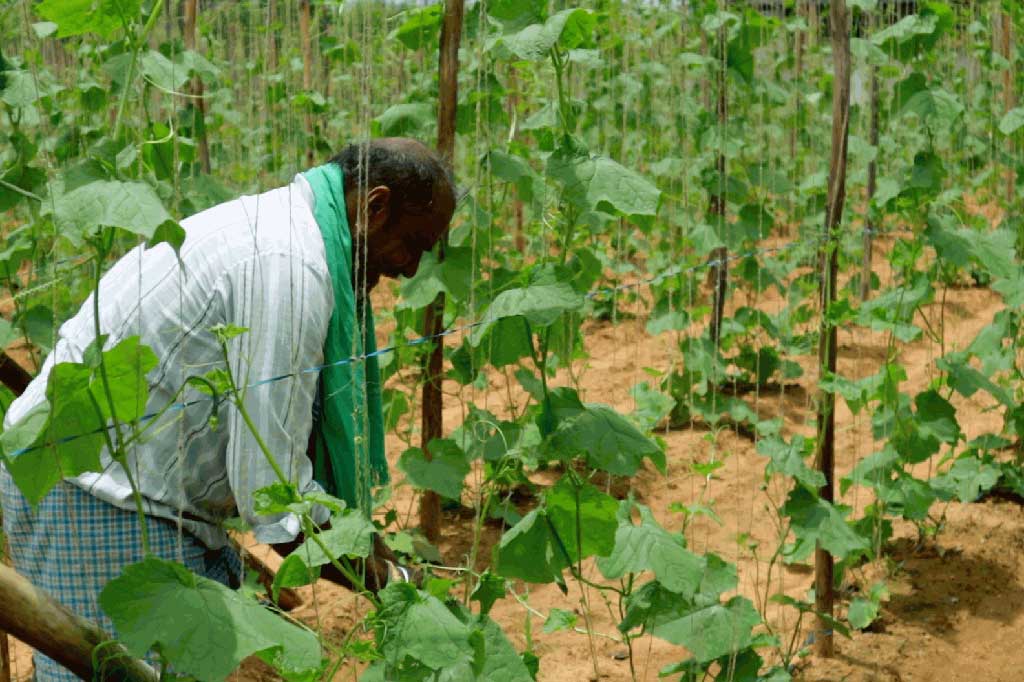
Organic farming is a sustainable and environmentally friendly approach to agriculture that emphasizes soil health, biodiversity, and natural methods of pest control. It ensures that the produce is free from synthetic chemicals, genetically modified organisms (GMOs), and harmful pesticides.
Over the last few years, with concerns rising over the use of chemical pesticides and chemical fertilisers and their possible long-term health effects, consumers have slowly been making the shift to organic produce.
One of the key trends that have been observed in the food retail space in India is the growth of the organic food industry. While this was largely a trend in the early 2010s, over the last few years, the demand for organic and natural food has metamorphosed into a need. As per industry estimates, the organized food retail and grocery market in India is expected to grow at a CAGR of 8 percent between 2021 and 2025. For the same period, the organic food market is poised to grow at an estimated CAGR of almost 20 percent. India ranks among the top organic producers globally – India has over 30% of the world’s organic producers, and the total area under organic cultivation is close to 3 million hectares. The numbers reveal the sheer impact that the organic food segment is set to have on the food industry, in terms of growth as well as trends.
So what exactly goes into how organic produce is grown?
Soil Preparation:

The foundation of any successful organic farm is healthy soil. Farmers begin by enhancing soil fertility through natural means. This includes practices like crop rotation, green manure, and composting. Crop rotation helps prevent soil depletion by alternating the types of plants grown in a specific area. Green manure involves planting cover crops like clover or legumes that fix nitrogen in the soil, improving its nutrient content. Composting organic matter like kitchen scraps, yard waste, and animal manure provides essential nutrients for plant growth.
At Happy Harvest Farms, we prioritise soil health because we believe healthy soil that is rich in good organisms is the best way to yield fruits and vegetables that are not only organic in the true sense of the word, but filled with authentic, fresh, rich taste. The more you add compost, the richer the soil becomes in good microbes. Our compost is farm-made and even when sourced from outside, it is of the highest quality. And when you eat these fruits and vegetables you are assured of complete nutrition for your family. Eat our produce and you will see the difference!
Seed Selection:
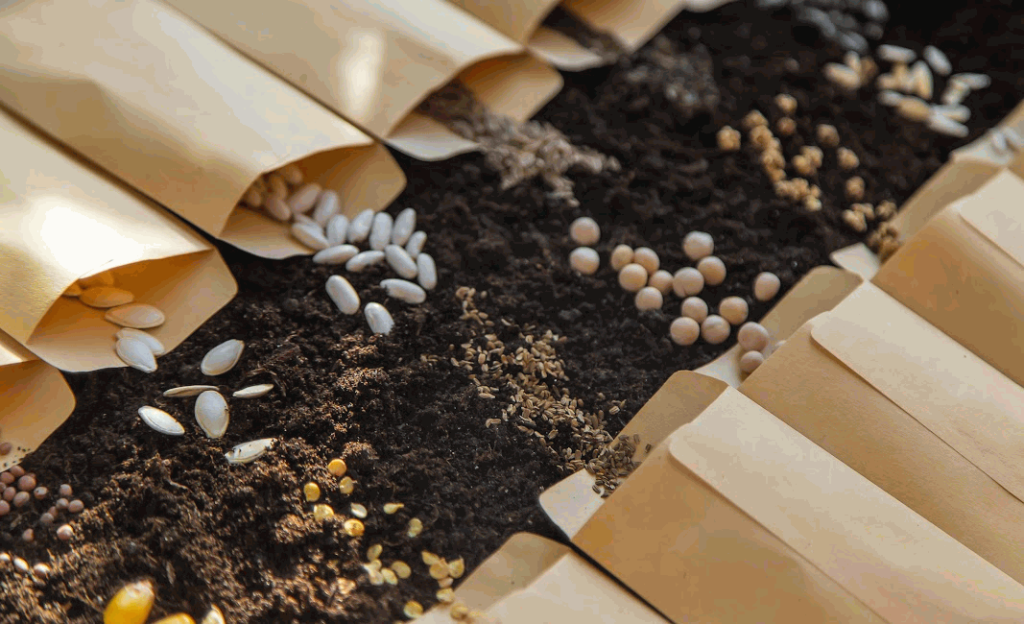
Organic farmers meticulously select seeds that are specifically bred for organic production. These seeds are non-GMO, untreated with synthetic chemicals, and adapted to thrive in organic conditions. By using heirloom and open-pollinated varieties, farmers contribute to the preservation of genetic diversity in our food supply.
Planting:
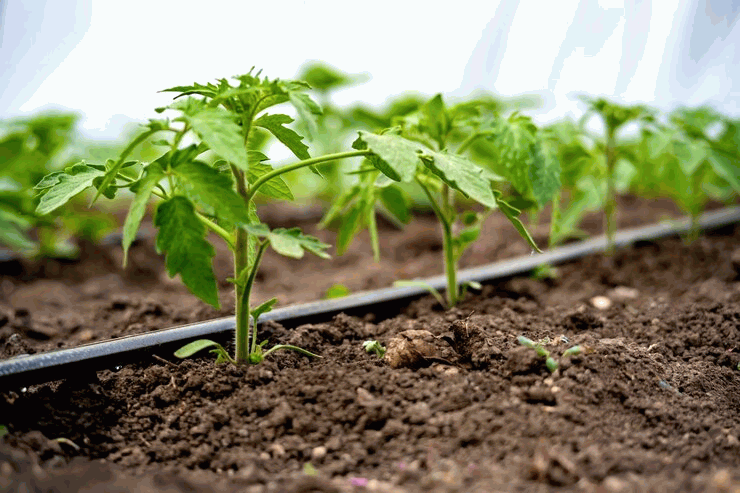
The timing of planting is crucial in organic farming. Farmers often follow the natural cycles of the seasons to optimize growth. They use techniques like companion planting, where compatible plants are grown together to enhance each other’s growth. For instance, planting marigolds alongside tomatoes can deter pests, something that we have often done across our farms. Mulching is another practice used to suppress weeds, retain moisture, and regulate soil temperature.
Crop Maintenance:
Organic farmers employ a combination of traditional wisdom and modern science to maintain their crops. They rely on natural predators like ladybugs and wasps to control pests. In some cases, they might introduce beneficial insects or employ physical barriers to protect plants. Regular monitoring of crops allows farmers to identify issues early and take appropriate action.
Weed Management:
Weeds compete with crops for nutrients, water, and sunlight. Organic farmers use several methods to manage weeds. Hand weeding is a common practice, although it can be labour-intensive. Mulching with organic materials like straw, wood chips, or leaves suppresses weed growth.
Irrigation:
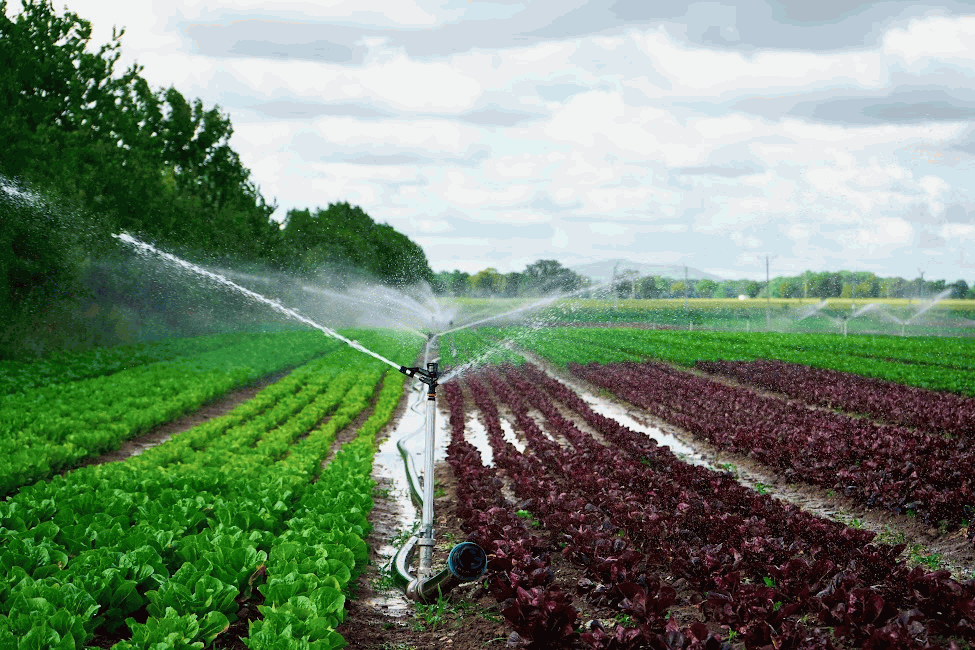
Organic farms prioritize water conservation. Drip irrigation and rainwater harvesting systems are commonly used. These methods deliver water directly to the plant roots, minimizing evaporation and reducing the risk of fungal diseases.
Natural Pest Control:
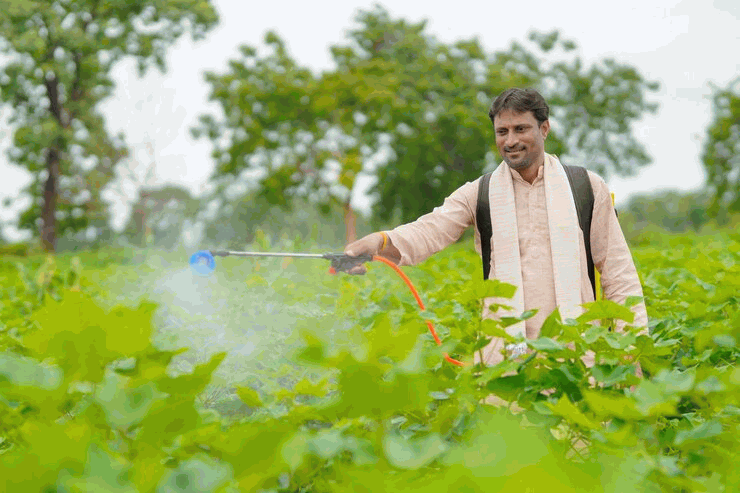
One of the hallmarks of organic farming is the use of biological pest control methods. This can include introducing beneficial insects like ladybugs, lacewings, or predatory beetles. Birds, bats, and even certain species of spiders are encouraged to establish a natural balance.
Harvesting:
Knowing when to harvest is an art in itself. Organic farmers observe the natural indicators of ripeness and maturity. They might also perform taste tests and assess the texture and colour of the produce. Gentle handling is crucial to prevent damage during harvest. Unlike conventional farming, at Happy Harvest Farms, we do not use artificial ripening agents.
Organic farming is a holistic and sustainable approach to agriculture. It involves a combination of ancient wisdom, modern technology, and a deep respect for nature. By understanding the intricate process of growing organic vegetables on farms, we gain a greater appreciation for the hard work and dedication of organic farmers in providing us with wholesome, chemical-free produce.
At Happy Harvest Farms we strongly believe in the virtues of organic farming. So if you are looking for a place to order fresh organic vegetables online, look no further than Happy Harvest Farms! Buy Organic Vegetables online in Bangalore from Happy Harvest Farms and be assured you are getting 100% certified-organic, safe produce that is truly the better choice for your family and you!